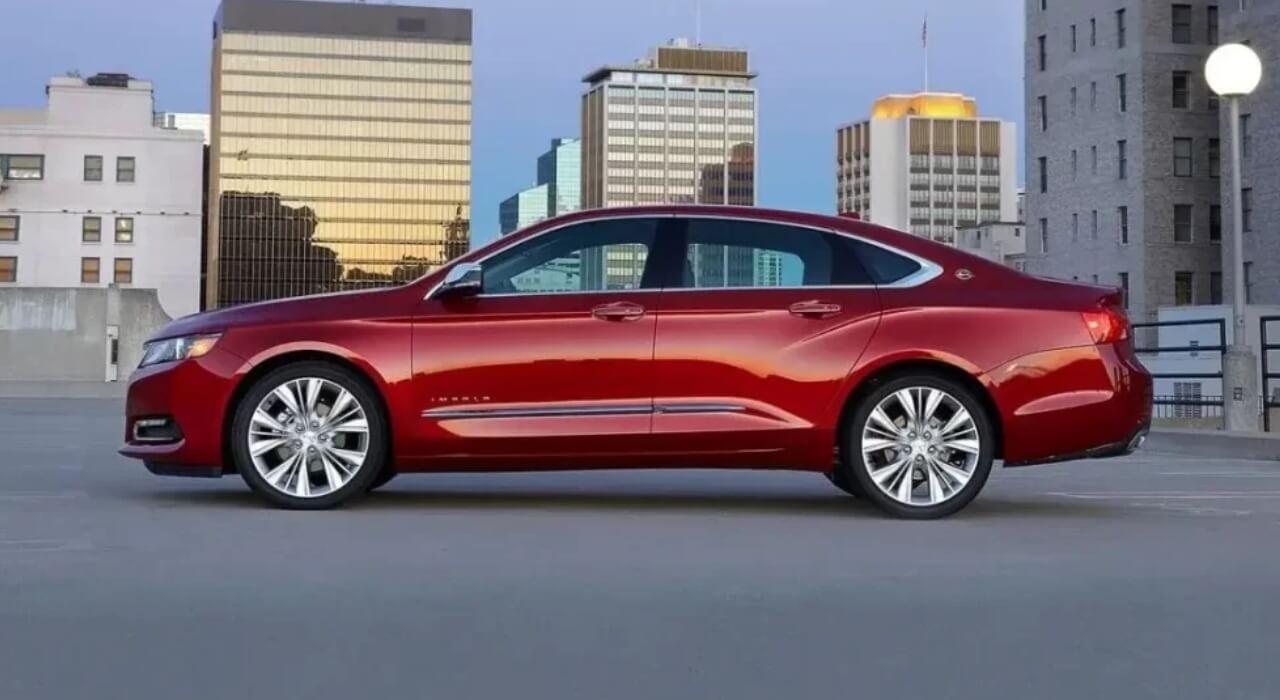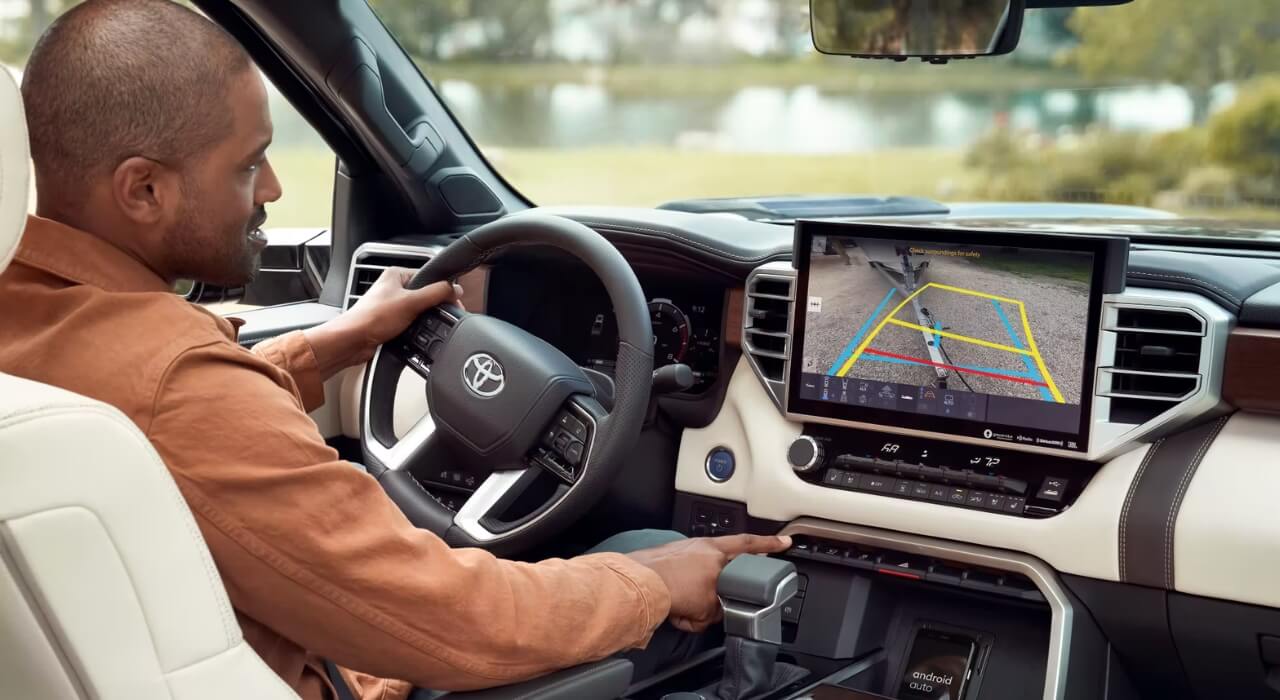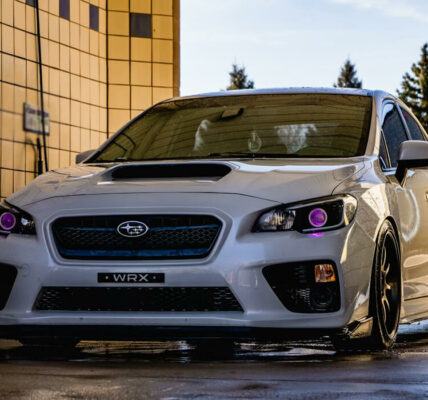Are you frustrated when your vehicle makes noise while driving and do you know the main reasons why the car squeaks when turning? Then stay with us and learn how to fix this problem.
Unfortunately, vehicle noise is always a sign of something big. On the other hand, the good news is that you are not the only one and the front wheel squealing when turning is a fairly common problem that occurs due to several factors.
But whatever the reason, you should take it to a mechanic as soon as possible to prevent further problems later on. There are several reasons, and some parts play a role if you hear a screeching noise from your car when you turn the steering wheel.
This can lead to vehicle damage or even an accident. In most cases, they are relatively minor and require a simple fix.
Below is a guide to the most common issues that can cause squeaking noise when turning, how to check for them, and some troubleshooting tips.
7 Top Reasons Why Does My Car Squeak When I Turn
There are many noises your car will make to frustrate and despair you over its lifetime, but when does a car squeak? It’s just annoying. A squeak can be nothing. Or it could be something. It could be the start of something and nothing that will inevitably lead to more serious problems.
Or it could be practically nothing. Here’s our guide to the most likely causes of car squeaks when turning left and braking.
1. Faulty Strut Bearings
The suspension strut bearings are located in the suspension strut mounts. Some come as separate pieces and others are built into the dome bearings. Strut mounts connect the struts to the vehicle.
They isolate noise and absorb vibrations from the road and the suspension system. Some strut mounts are very simple, while others are built like a plate. They allow the front shock absorbers and spools to rotate when the steering is turned.
Over time, strut mounts wear, and rust, and sometimes the mount seals break, allowing dirt to enter the mounts.
2. Low Power Steering Fluid
For a smooth ride and steering, you need well-lubricated power steering. If the fluid is insufficient, turning will be difficult and the steering system cannot be lubricated. Moving components rub against each other and can be the cause of the squeaking noise.
Suggestion: Top 7 Common Problems After Changing Fuel Pump – How To Fix?
Dehydration can be the simplest and most common problem of all. It is best to cross this out yourself by first checking the liquid level in the reservoir.
3. Faulty Suspension Parts
Another possible cause is that another part of your suspension is damaged or broken, which is a more serious problem than the first. The suspension consists of many smaller parts connected by axles, making access difficult.
If any of these parts are defective, there may be a grinding noise coming from the suspension. A faulty suspension is a reason why car wheels squeak when you turn when going over potholes.
The suspension is designed to prevent potholes from damaging the vehicle when driving over bumps or rough terrain.
4. Worn Belt
Another cause of why my car squeaks when I turn could be a worn or slippery belt. When your power steering belt is worn, it can slip. This can affect the fluid pressure in the steering pump.
If your belt breaks you will find that steering becomes very difficult. This is because your power steering pump cannot work without the belt.
5. Bad Power Steering Fluid
Hydraulic power steering uses a pump to increase the pressure of the power steering fluid. Let’s assume that the pressurized steering fluid exerts an additional force on the steering gear, making the vehicle easier to steer.
Popular For You: Water Spots On Car Won’t Come Off?- 6 Easy Removal Tips
If you hear growling or howling noises when your car’s engine is running and the front wheels are off-center, this is a sign that your power steering fluid level is low and it generates a squeaking noise when turning.
6. Faulty CV Joint
A CV joint or constant velocity joint can take a long time to wear out. According to experts, it can take more than 100,000 miles to wear out. A damaged CV joint can make a grinding noise when turning at low speed.
You may not notice the noise at first as they are almost silent when driving straight ahead. As we said, the hinge itself can take a lot, but that doesn’t mean you have to let go of it until it breaks.
7. New Car Friction
If your car is on the newer side, a squeaking noise from the front wheel when turning may be the result of the steering wheel housing rubbing against the interior trim. Newer vehicles are particularly prone to this problem during the summer months.
As higher temperatures can promote increased friction between car components. If you can stand the noise, this problem usually resolves itself within a few months.
Also Check:
Can You Repair Car Squeaks When Turning on Your Own?
You’ll understand this answer better in a few minutes, but it’s different. For the experienced DIYer with lots of mechanical experience and the right tools, any of these problems can be fixed.
You’ll find that they all have a mechanical basis. Most solutions involve taking out and replacing the squeaky part or adding lube, which is easy enough for the right person. However, many of the solutions also involve disassembly.
If you’re not sure if you can properly disassemble and reassemble a car part, it’s easier to take it to a mechanic.
How To Fix The Squeaking Noise When Turning Car?
When braking or turning a car, you may hear a screeching noise. Because some parts of your car are not working properly. However, this is not a big problem. But it can be dangerous if you treat it for a long time.
Whether or not you have enough time to repair your car yourself. It becomes crucial when you live far away from a garage. Below is one way to correct the squeak when turning the car.
1. Suspension Lubrication
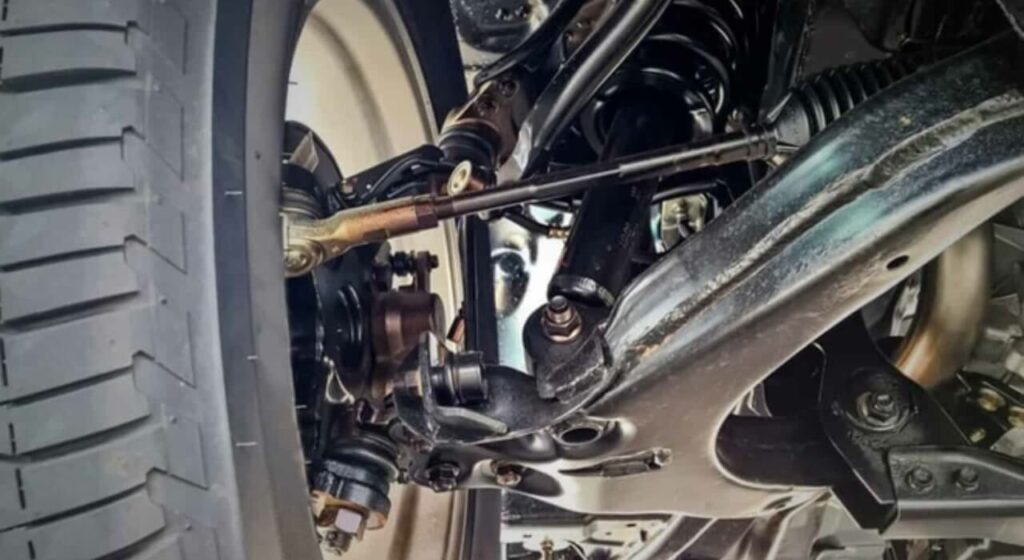
Every car’s suspension system has dozens of tiny connection points and components. The solution is very simple and involves lubricating the squeaking parts. For hanging accessories, you can use a grease gun.
Apply a generous amount. A silicone spray is best for your feathers. The squeak should go away completely after you grease all the parts and drive a few miles.
2. Constant Velocity Joints Service
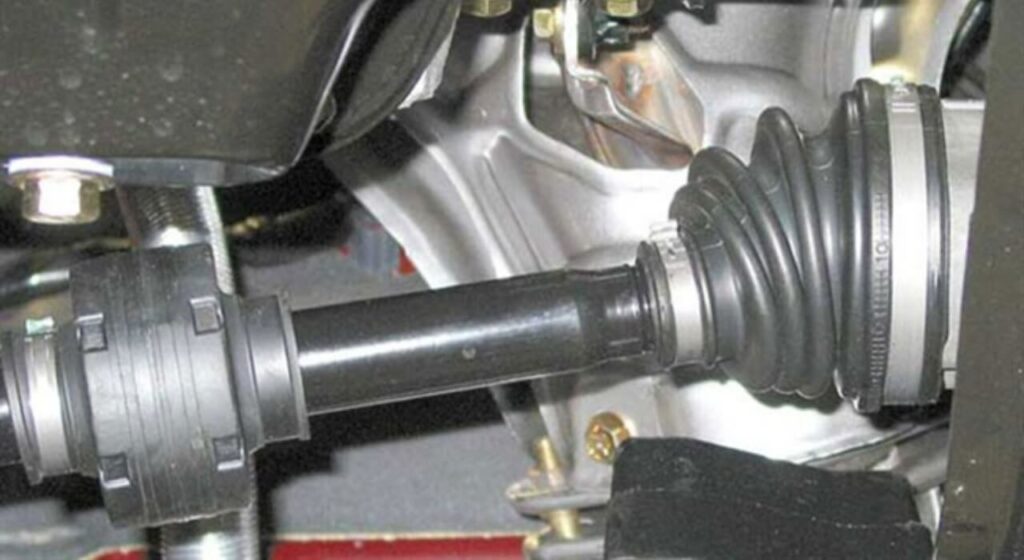
Constant velocity joints are the main part of the drive shaft. This helps the drivetrain transfer power to the wheel. It is usually full of fat and has a protective coating. So if the constant velocity joints are damaged or dry, you may hear a grinding noise.
It can also produce grinding or clicking noises. Turning your car around sharp corners can be dangerous. You may lose control of your car. So every time you have your car checked. You should check this part.
3. Replace Serpentine Belt
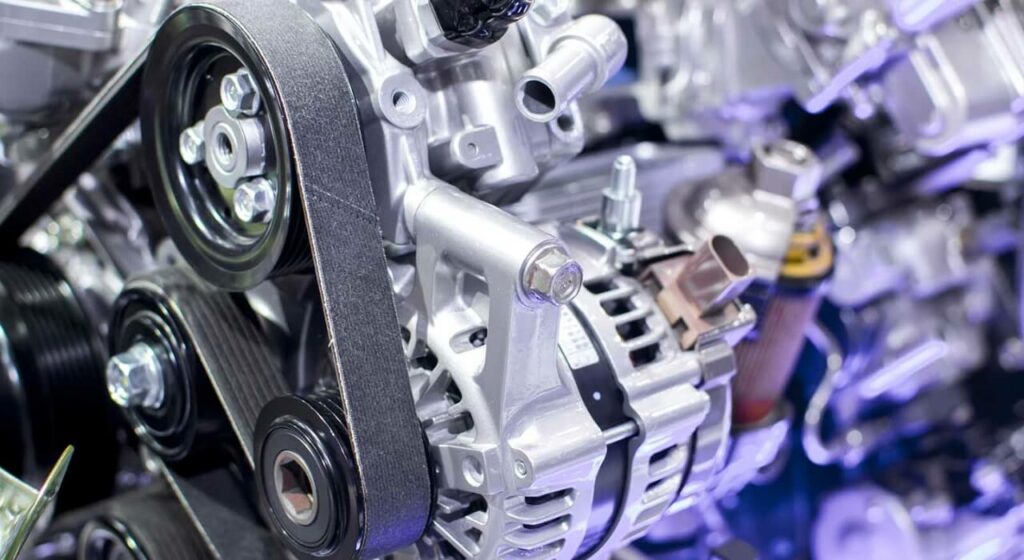
It doesn’t cost much to replace a serpentine belt, but leaving it that way could result in massive repair bills. On average, the belt should only cost you around $75. You may need to replace the tensioner while you’re at it, which could add to the cost.
Also Check:
If you can do it yourself, you can avoid labor costs. However, some serpentine belts can be difficult to use because some of the tensioners are difficult to reach.
4. Fill the Power Steering Fluid
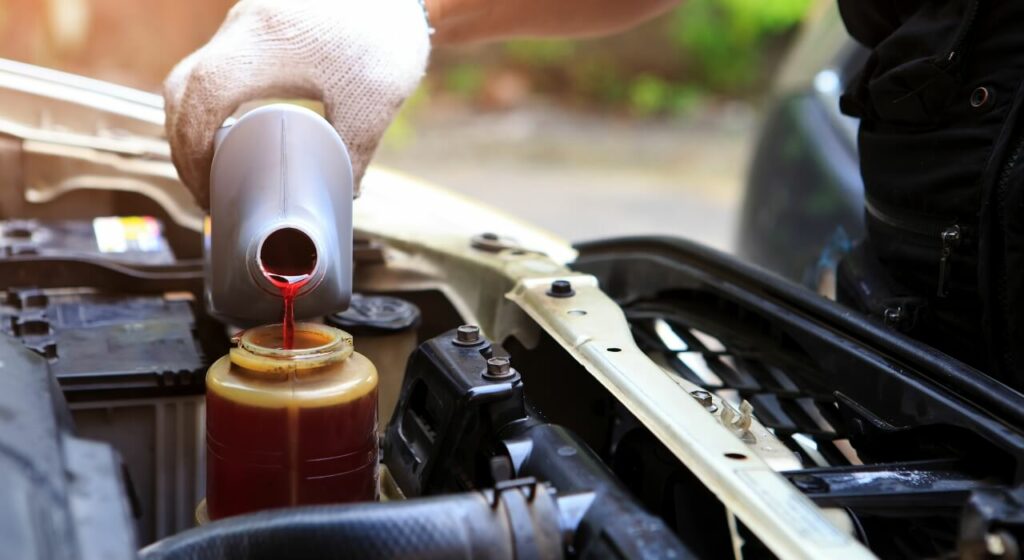
If the system is low on power steering fluid, a simple top-up may be enough. If the fluid appears contaminated, it is best to flush and refill. A power steering flush is only $50-$150 at most locations.
If the power steering pump is faulty, a new one is required. You can pay $100-$200 for the pump itself and another $200-$300 for labor if you can’t install it at home.
Top FAQs About Why Does My Car Squeak When I Turn
Why is my car squeaking when I turn?
Usually, this is caused by a leak. A worn power steering belt can cause a grinding noise because the belt can slip when the wheel turns. A faulty power steering pump can also be the cause of a squeal as the system is not maintaining proper fluid pressure.
In many cases, you can prevent a squeaking car simply by maintaining it.
Is it safe to drive a squeaky car while turning?
It depends on what is causing the problems. While you may be able to drive the car with a squeak, it may not be advisable to do so. If you drive with a worn V-ribbed belt, for example, you risk massive engine damage if the belt breaks.
Also, you don’t want to drive with bad brakes. As brake pads and rotors wear, braking distances increase, making it more difficult to avoid an accident.
What causes a squeaking noise while driving?
A squealing noise may indicate that the wheels or suspension are worn or excessively worn. Skidding, screeching when cornering, bumping, and screeching when going over potholes are possible signs of ball joint problems.
How to fix the car suspension from squeaking?
As a temporary solution, you can use a spray-on lithium grease to lubricate any metal parts that may be rubbing against each other. Silicone spray is the best choice for rubber parts. While this will reduce noise, you may want to have your suspension repaired or replaced to ensure a safer ride.
Can bad brakes cause squeaking when turning?
The brakes do not usually make noise just by turning the wheel. The torque that is produced in the steering system when turning can flex various components in the brake system. And create the same screeching noise that you can have here when braking.
Some things to watch out for in the brake system are pads that are loose in their guides. Brake system noise is caused by vibrations that create harmonics.
How much does it cost to fix a squeaky sound from a car?
Well, that will depend on a few things. Sometimes the belt tensioner doesn’t do its job properly and causes the squeaking. In other situations, the belt may simply be worn out.
It is best to take your vehicle to an auto mechanic so they can look at the problem and find out what the problem is. At that point, they can tell you what the cost will be.
Final Thought
I hope this guide has helped you find the answer to why a car squeaks when turning. I know that a lot of the problems are harder to fix and hard to fix yourself. Regardless, this should give you the information you need to stop that annoying screeching noise.
If you still hear the noise despite everything you’ve done, it’s best to take your car to a professional mechanic for full service.







